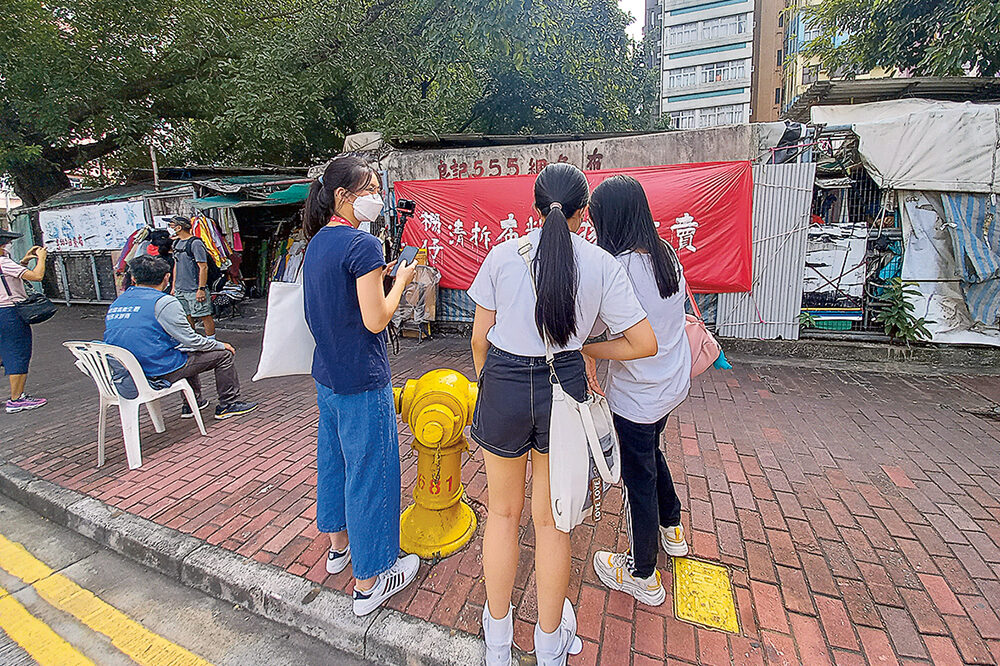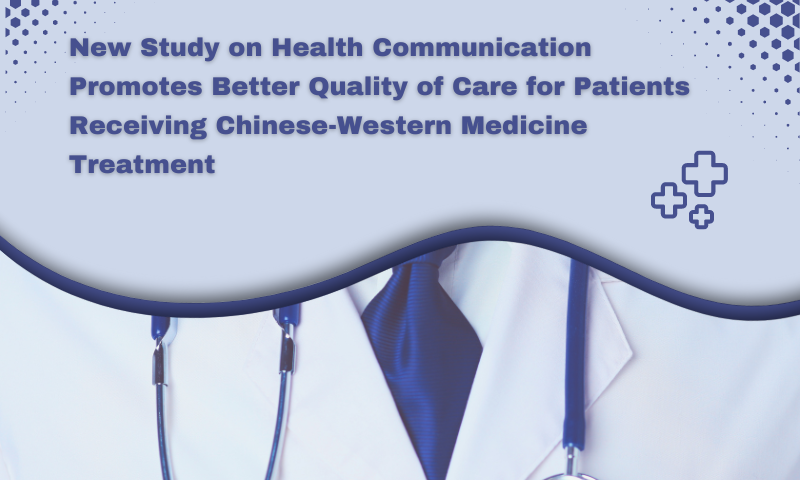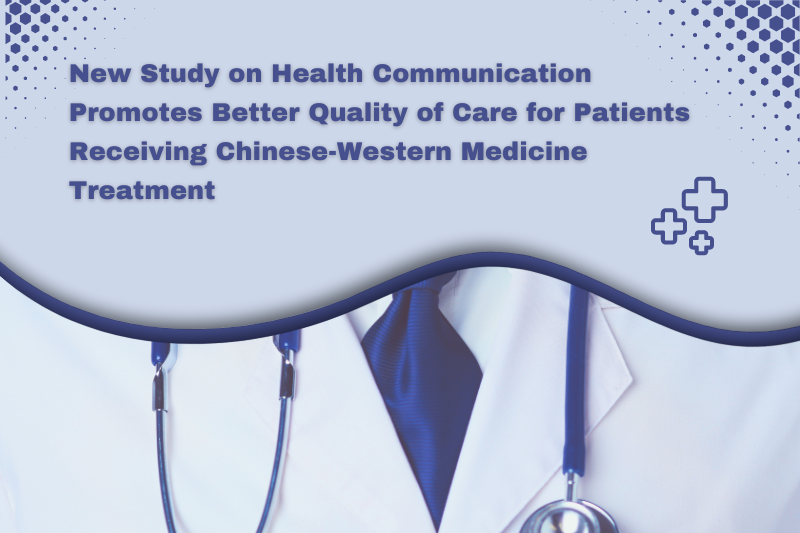
城大以不同學習計劃 帶領中學生認識香港 (Chinese Version Only)
11 May 2023
Combatting ‘job-hopping’ isn’t the solution, solidarity with Hong Kong’s migrant domestic workers is
21 May 2023New Study on Health Communication Promotes Better Quality of Care for Patients Receiving Chinese-Western Medicine Treatment

Principal investigator: Prof Jack PUN (Department of English)

During the fifth wave of COVID-19 outbreak, it was common to see Chinese medicine being adopted in treating COVID patients and the possible effects on elderly patients of recovering from the disease. As the use of traditional Chinese medicine (TCM) in integrated treatment is gaining increasing recognition and popularity amongst the general public, there is a need to investigate the role of effective clinical communication in TCM context, particularly for communicating with patients who seek both TCM and Western Medical care.
In a TCM consultation, TCM practitioners tend to pay more attention to the patient’s personal experience, taking a holistic view of the patient’s physical body, the organs’ conditions and relationship with their environment. In contrast, Western Medicine (WM) doctors may perhaps only focus on identifying the primary clinical concerns of a patient that have caused the illness, using scientific evidence. Illnesses are mainly diagnosed through the use of empirical data obtained from a range of physical examinations with the help of high-end medical apparatuses and instruments. When more patients nowadays adopt a combined treatment of TCM and WM, it is essential for TCM practitioners to grasp a full picture of patients’ Western medical history to provide them with better quality of care and clinical outcomes, such as high patient satisfaction and treatment compliance.
In Hong Kong healthcare context, the risk analysis reports from the Hospital Authority, along the recent media coverage on medical incidents and hospital crises, revealed that an effective health communication is pivotal to the current health care system in Hong Kong, and that there is a need to build a well-informed framework for education and professional development for health care professionals. Supported by Health and Medical Research Fund under the Hong Kong Government, Food and Health Bureau, Dr Jack PUN, Assistant Professor from the Department of English at CityU, and his team designed a communication intervention based on the Calgary-Cambridge guides for teaching effective doctor-patient communication skills and modified it for TCM context, in collaboration with TCM professors/researchers from School of TCM at HKBU and CUHK. The aim of the intervention is to enhance the communication skills of TCM practitioners by offering them a structural communication framework to elicit their patients’ Western-based medical history and allowing space for discussions about treatments and diagnosis, taking account of the patients’ western medical encounters.
There were eight TCM practitioners participating in the project, four were in the control group and another four in the experimental group. Using pre-test, post-test and delayed-post-test, communication skills of the participated TCM practitioners were evaluated in terms of their quality of interaction, coverages of topics under Calgary-Cambridge guides on effective doctor-patient communication. The result shows that the intervention is successful in promoting better communication amongst those TCM practitioners in the experiment groups where they elicit patients about their wester-medical history. For control group, TCM practitioners delivered consultation according to their usual practice without much of consideration of patients’ western medical history. In contrast, patients in the experimental group were invited actively to discuss their medical history from past Western-based medical treatments. Interview was conducted with the patients about their satisfactions of the TCM practitioners’ communication.
At the end of the project, the team developed and validated an effective communication model that can help TCM practitioners to enhance their communication practice in their normal TCM consultation in HK context. The framework and the developed instructional videos help the trained TCM practitioners better integrate their patients’ Western medical history when delivering patient care. The findings contribute significantly to the development of an integrative model to assist TCM practitioners with informing patients about their treatment decision upon receiving Western-based medical care. For more information please refer to below publications and website of the project:
Calgary-Cambridge guide (instructional video)
Publications:
1.Pun, J. & Wong, W. (2022). Navigating communication between conventional medicine and traditional Chinese medicine: A case study of patients with cancer in Hong Kong. Supportive Care in Cancer. https://doi.org/10.1007/s00520-022-06986-8.
2.Pun, J. and Chor, W. (2020). Use of Questioning between Traditional Chinese Medicine Practitioners and Patients to Realize TCM Philosophy: Holism, Five Elements and Yin-Yang in the Context of Doctor–Patient Communication, Health Communication. https://doi.org/10.1080/10410236.2020.1828533
3.Pun, J. (2020). Moments of ‘touch’ as a way for mental support in Traditional Chinese Medicine consultations: Analysis of the interactional process of co-constructing understanding of the patient’s body conditions in Hong Kong. Complementary Therapies in Medicine. https://doi.org/10.1016/j.ctim.2020.102516
4.Pun, J., Chor, W. & Zhong, L. (2019). Delivery of patient-centered care in complementary medicine: Insights and evidence from the Chinese medical practitioners and patients in primary care consultations in Hong Kong. Complementary Therapies in Medicine. https://doi.org/10.1016/j.ctim.2019.06.013
